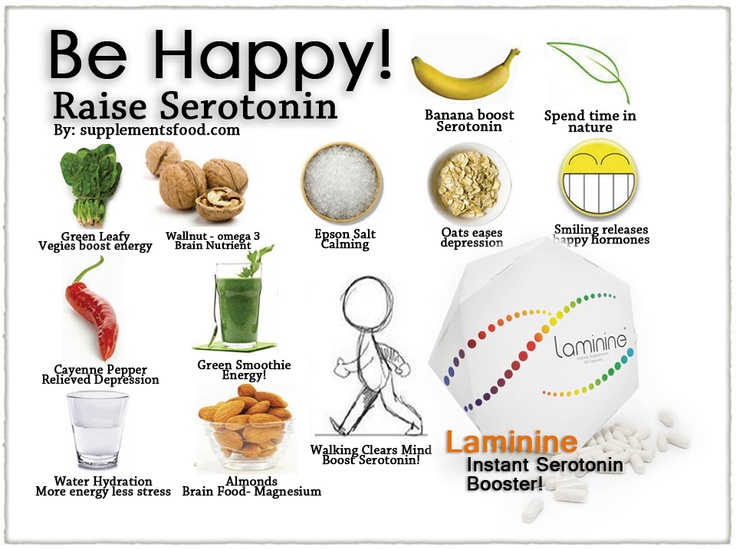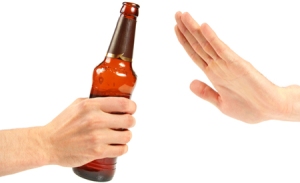
1 hour of Extra Sleep increases Your Earnings by 16%..How??
May 10, 2018
The current global business scenarios in rapidly changing business trends and consumer behavior, growing customer demand, fast dwindling profits and constant manpower turnover has added hugely to the already existing work and family pressures being faced by business owners, entrepreneurs, organizational heads and people at the top of the ladder.
Physical, emotional and mental breakdowns are a common sight and people right at the top, get little time to address their wellness needs. Not only this challenge bears a direct negative consequence on their personal and business health but also their family and social life. Many recent types of research conducted in the area of anxiety and depression and loss of pleasure, has revealed the low presence of serotonin a chemical found in the brain as the major culprit.
Serotonin is the main brain chemical responsible for making us feel happy, relaxed, and self-confident. The behavioral researcher believes that low serotonin is responsible for current epidemics of depression and anxiety. Besides mood, serotonin also plays an important role in our sleep, sex drive, and digestive health. If you suspect you have a serotonin deficiency, here are the symptoms, the many ways it can affect your life, and steps you can take to increase serotonin naturally.
Other than anxiety and depression, other symptoms of serotonin deficiency include:
- Anger
- Being unusually sensitive to Pain
- Carbohydrate Cravings and Binge Eating
- Constipation
- Digestive Disorders
- Feeling Glum from lack of Sunlight
- Feeling Overly Dependent on Others
- Feeling Overwhelmed
- Hyper-Vigilance
- Insomnia
- Joylessness
- Low Self-Esteem
- Migraines
- Poor Cognitive Function
- Tinnitus
Life is bleak when you are low on serotonin.
High Serotonin leads to

Peaceful, fulfilled, calm, open, clear-minded, focused, socially dominant personality is found in people with high serotonin. Life with high serotonin levels can be beautiful.
Thankfully we have some wonderful ways to naturally enhance our serotonin.
 Enhance Serotonin with Meditation
Enhance Serotonin with Meditation
Studies have shown enhanced production of serotonin in persons who meditate. People who regularly meditate also have higher levels of the sleep-promoting hormone melatonin. Melatonin is made out of serotonin in the pineal gland.
Some people observe deep states of bliss and euphoria while practicing meditation. This is probably a result of the combination of elevated serotonin and dopamine levels.
 Enhance Serotonin with Physical Exercise
Enhance Serotonin with Physical Exercise
Exercise reduces anxiety, depression, and sensitivity to stress. Exercising is the closest way to a miracle cure for anything psychological. Millions of years of evolution have adapted our bodies to movement. Movement and exercise is the single best method of balancing our neurotransmitters. One of the effects is that it increases our levels of serotonin.
Increase Serotonin with Light
Light therapy is becoming popular as a treatment for seasonal depression. We have lower levels of serotonin during winter or rainy season than during summer, which is part of the reason for seasonal depression. Bright light stimulates serotonin production. Light therapy can also work other times of the year. Some studies suggest it is an effective treatment for nonseasonal depression.
Morning light therapy can also help you fall asleep in the evening. Even as little as 15 minutes of light in the morning can help you become sleepy at night.
Light treatment is best with whole spectrum light. White light is better than blue and red light, and UV light is not required. Light treatment seems to be the most effective with an intensity of 2500 to 10000 lux of full-spectrum light.
Light treatment is especially effective in winter for people with seasonal mood disorders. Patients with the seasonal affective disorder (SAD) respond particularly well to light treatment. Other predictors of a good response to light treatment are sugar cravings and excessive daytime sleepiness.
If you decide to buy a light therapy lamp, go for one with full spectrum light and intensity of 2500-10000 lux, equivalent of full sunlight.
 Enhancing Serotonin with Sunlight
Enhancing Serotonin with Sunlight
Direct or diffused sunlight stimulates the release of serotonin. Human skin has a built-in serotonergic system that seems to be capable of generating serotonin. Tryptophan hydroxylase, which is the initial enzyme in the synthesis of serotonin, is present in human skin.
Lack of sunlight exposure causes more sickness than we can contract from direct exposure to sunlight. Lack of proper bone formation, depression, and other sickness are contracted easily due to poor vitamin D generation.
Sufficient vitamin D in early life is correlated with a smaller risk of developing type 1 diabetes. Children who received 2000 IU of vitamin D per day from the age of one, had an 80% lower risk of developing type 1 diabetes later in life. Vitamin D can even help prevent multiple sclerosis.
Vitamin D also increases your level of dopamine, adding to the euphoria.
Social Dominance Enhances Serotonin
Studies on monkeys suggest that we have more serotonin when we are socially dominant. When dominant monkeys are taken out of their social context their serotonin levels quickly goes down to normal.
Studies on altered tryptophan levels also show that serotonin makes us more dominant. Participants who received high doses of tryptophan became more socially dominant, less aggressive and made less critical comments of others.
Enhance Serotonin with +ve Thinking
Studies reveal that thoughts affect our serotonin levels. Higher mood levels marked increased serotonin production whereas lower mood levels reported less serotonin production.
Enhancing Serotonin with Foods
However, the list of serotonin foods is a short one — walnuts, hickory nuts, bananas, pineapple, kiwis, plums, and tomatoes.
Another possibility would be to eat foods containing serotonin’s precursor, tryptophan. Tryptophan is an amino acid found in most protein food sources. However, trying to raise serotonin levels by eating tryptophan presents an interesting dilemma.
Protein blocks serotonin formation so levels of both tryptophan and serotonin decrease after eating protein. There are only a handful of foods that increase serotonin naturally by other means — dark chocolate, cold-water fatty fish, green tea, fermented foods, and turmeric.
The most reliable way to raise your serotonin levels with food is by strategically eating healthy carbohydrates separately from protein. It’s not a coincidence that people binge on carbohydrates when they’re feeling blue. Overeating carbs is a way to raise serotonin levels.
Enhance Serotonin with Niacin (B3)
The amount of clinical research on niacin’s effect on anxiety is sparse. However, it is suggested to take Niacin (B3) in natural form like all meats, mushroom, peanuts, sunflower seeds, avocados etc to cure anxiety.
Enhance Serotonin with Pyridoxine (B6)
Pyridoxine has been found to increase serotonin levels in monkeys. Pyridoxine is a B-vitamin that is cheap and widely available.
Enhance Serotonin with Theanine
Theanine, an amino acid found in tea, can enter our brain and affect our levels of neurotransmitters. Theanine seems to elevate our brain levels of both dopamine and serotonin
Enhance Serotonin with Low GI Carbs
Avoid sugar, refined wheat, and other fast-acting carbohydrates. Insulin removes tryptophan’s competitors in reaching your brain, BCAA’s, from your bloodstream. It is therefore important to have a steady level of insulin. Fast acting carbohydrates tend to give a large insulin spike followed by low blood sugar. Carbohydrates with low glycemic index are slowly released into your bloodstream, thereby keeping your insulin levels stable.
 Enhance Serotonin with Omega 3
Enhance Serotonin with Omega 3
The most important omega-3 fatty acids are EPA and DHA. EPA has been proposed to increase serotonin release and DHA influences serotonin receptors by increasing cell membrane fluidity. Long-term omega-3 intake can increase your serotonin levels.
Enhance Serotonin with Gut bacteria
Our guts are filled with bacteria, both good and bad. A gut flora out of balance can have a wide range of negative effects on your health. Your brain health and mood is also affected.
One study found that the probiotic bifidobacteria infantis significantly increase levels of tryptophan in the blood. Probiotic treatment over 8 weeks has been found to help lower depression.
Enhance Serotonin with Curcumin
Curcumin is a compound found in the spice turmeric. Curcumin has been shown to have antidepressant effects because of its effects on serotonin and dopamine.
 Enhance Serotonin by Limiting Alcohol
Enhance Serotonin by Limiting Alcohol
Alcohol has been found to significantly reduce serotonin 45 minutes after drinking. The sleep rhythms of people who have drunk alcohol the day before are significantly different from controls but very similar to patients with depression.
These results suggest that low serotonin is the mechanism behind depression after alcohol.
There is clear evidence of alcohol consumption and violence or other types of aggressive behavior. Aggression is also heavily linked to low serotonin levels.
The High Tryptophan Myth
We know that taking tryptophan increases your brain’s level of serotonin. There is a belief that foods high in tryptophan, such as chicken meat, will do the same. This is a myth. These high protein foods also contain a large amount of the other amino acids, which compete with tryptophan in crossing the blood-brain barrier.
There is also a myth that bananas improve your mood because they contain serotonin. It is true that bananas contain serotonin, but it does not cross the blood-brain barrier.

About the Author
Dr. Amitabh Singh is the founder of AadyantaLife and Bio-Energetic & Crystal Healer and Wellness Coach. He provides Alternative and Complementary Healing therapies to difficult ailments including Cancer. He specializes in Mindfulness Meditation Coaching for Corporate and Business Leaders. His thought-provoking Enlightening Lectures.




